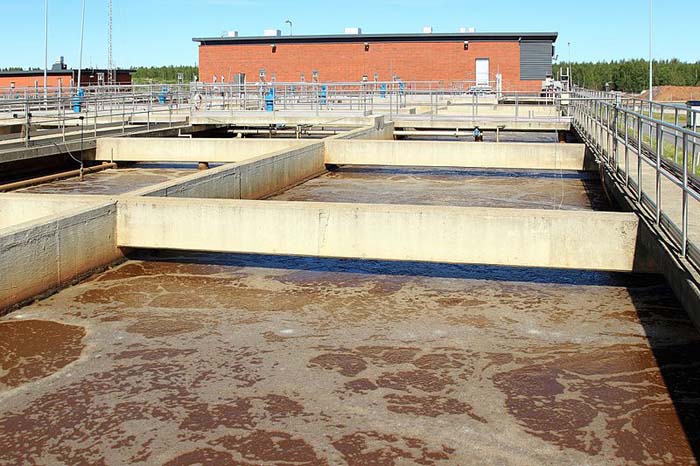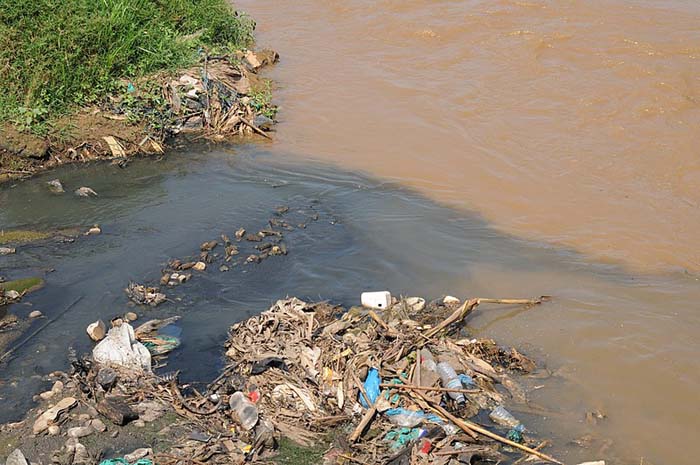
The process of treating and reusing wastewater produced by industrial activities is known as industrial wastewater reuse. The goals of this process are to decrease operational expenses, lessen the impact on the environment, and preserve water resources. Industries worldwide are embracing wastewater reuse as a way to combat water constraints and comply with regulations.
Importance of Industrial Wastewater Reuse
There are a number of regulatory, economic, and environmental reasons why industrial wastewater reuse is so important. The most important aspects of it are summarized here:
Policies and global effects
- Reduce the Impact of Climate Chang:
Industrial wastewater reuse reduces the energy footprint of freshwater extraction and treatment, helping to mitigate climate change.
Economic Advantages
- Regulatory Compliance
To avoid fines and legal penalties, it is easier to treat and reuse wastewater in order to comply with the strict environmental requirements surrounding wastewater disposal. Industries can be ready for future regulations that could put greater limitations on water use and discharge of wastewater by investing in industrial wastewater reuse systems.
- Recovery of Resources
By reducing demand for local water supplies and reusing wastewater, we can help preserve our freshwater resources for other important applications. Using certain industrial procedures, you can make more money by reusing or selling the precious materials extracted from wastewater.
- Cost Savings:
Industries can save a lot of money on water bills by minimizing their use of freshwater sources and increasing their use of wastewater for other purposes. Reducing the amount of wastewater that needs treatment and disposal can help reduce treatment and discharge costs. This is achievable through on-site wastewater treatment and reuse.
Technological Innovations
- Knowledge Transfer:
By disseminating and emulating successful industrial wastewater reuse practices, more sustainable practices can be adopted by more sectors and areas.
- Innovation and Development:
Innovative treatment methods and technologies are being developed in response to the growing need for efficient wastewater treatment and reuse.
Social and community benefits
- Corporate social responsibility
Industries that spend money on wastewater reuse show they care about the environment and society. This is good for their credibility and relationships with the locals.
- Protecting public health
By reducing the discharge of industrial wastewater that has not been properly treated, the public’s health is protected. This helps to prevent the pollution of potable water sources.
Operational Advantages
- Enhanced process efficiency
By supplying a steady stream of water with properties customized to industrial demands, treated wastewater reuse can boost process effectiveness and product quality.
- Water Supply Security
By recycling wastewater, industries can secure a consistent water supply for their operations, regardless of drought or water scarcity.
Ecological Advantages
- Sustainable Water Management:
Industries may help the environment by reducing their impact on water management and incorporating wastewater reuse into their processes.
- Energy Savings
The energy needed to source, transport, and treat freshwater is substantial. This makes on-site wastewater treatment potentially more energy efficient. Anaerobic digestion is one method of wastewater treatment that can produce biogas. This gas can then help generate energy, further lowering the environmental impact.
- Pollution Decrease
Wastewater treatment and reuse reduce the amount of polluted water in our lakes, rivers, and seas. Human populations and ecosystems alike reap the benefits of cleaner effluent. This is because it improves the water quality for consumers downstream.

- Conserving Water
By reducing the demand for freshwater extraction from natural sources, industrial wastewater reuse helps to preserve ecosystems and local water bodies. It encourages sustainable water usage to ensure that companies can rely on water without destroying natural resources.
Examples of Industrial Wastewater Reuse Applications
- Process Water
Textile manufacturers and paper mills are only two examples of the many industries that reuse their treated wastewater. Because of this, there’s less need for freshwater, which can save money. As long as the wastewater meets certain quality standards, it can be reused in various chemical manufacturing processes.
- Agricultural Irrigation
Mining and other large-scale industrial facilities sometimes irrigate their own agricultural fields and landscapes with treated wastewater. Lawns and greenbelts surrounding industrial sites are irrigated with treated wastewater, which improves the local ecology.
- Heating and Cooling
A cooling tower filled with treated industrial wastewater can be used as a cooling medium. This happens frequently in manufacturing facilities and power plants. After undergoing the appropriate treatments to eliminate pollutants that could lead to corrosion or scale, treated wastewater is used as boiler-feed water in industries such as chemicals and textiles.
In order to maintain a healthy ecosystem, save money, ensure consistent operations, and do the right thing by society, it is crucial to carry out industrial wastewater use. It provides a comprehensive strategy for promoting eco-friendly industrial practices, decreasing contamination, and combating water scarcity.
Common Sources of Industrial Wastewater
The origins of industrial wastewater can vary greatly depending on the nature of the industry and the specific processes that are taking place. The following are examples of typical industrial wastewater sources:
- Rubber and Plastic Industry:
- Organic contaminants, chemicals, and plasticizers are occasionally found in wastewater.
- Manufacturing and production facilities:
- Pulp and paper mills:
These discharge effluents contain suspended solids, chemicals, and organic contaminants.
- Food and beverage processing
It produces effluent with cleaning agents, oils, organic matter, and fats.
- Chemical Plants
The wastewater contains significant concentrations of potentially harmful heavy metals, solvents, and chemicals.
- Textile Mills
Dyeing and finishing produce wastewater, which includes organic matter, chemicals, and dyes.
- Petroleum Refineries:
- Heavy metals, chemicals, and hydrocarbons are some of the substances that end up in wastewater due to refining.
- Agro-industries and agriculture:
- Sediments, fertilizers, pesticides, and organic matter are all components that wastewater from farms and associated industries may have.
- The Manufacture of Semiconductors and Electronics:
- Heavy metals, solvents, acids, and other potentially harmful substances are present in the wastewater of these facilities.
- Electroplating and metal finishing:
- The wastewater is contaminated with substantial amounts of acids, heavy metals, and other chemicals used in surface treatment procedures.
- Automotive Industry:
- It produces effluent from industrial processes and maintenance, including cleaning agents, greases, oils, and heavy metals.
- Power Plants:
- Thermal contamination, chemicals, and heavy metals exist in wastewater from flue gas desulfurization, cooling water discharges, and other processes.
- Leather and Textile Industries:
- The tanning and dyeing operations produce wastewater that contains organic matter, chemicals, dyes, and salts.
- Mining and Mineral Processing:
- Chemicals, sediments, and heavy metals are present in significant concentrations in mining wastewater.
- Distilleries and breweries:
- The wastewater is laden with cleaning chemicals, alcohol, and organic matter.
- Pharmaceutical Industry:
- Solvents, active pharmaceutical components, and other manufacturing-related substances may be present in wastewater.
Wastewater from these sectors is distinct, necessitating tailored treatment methods to minimize its negative environmental effects. To avoid contamination and preserve water resources, handling and treating industrial wastewater is essential.
Implementation Strategies
- Treatment System Design:
- Make sure treatment systems can be easily expanded to meet future needs.
- Diagnose the unique wastewater needs of each industry and adapt treatment technology accordingly.
- Assessment and Planning:
- Find out how much wastewater is produced through a thorough water audit.
- Create a plan for reusing treated water that considers its quality and applications
- Safety and Regulatory Compliance:
- Make sure that any leftover waste from the treatment process is disposed of safely.
- To maintain water quality, follow national and international regulations.
- Operational Management:
- Educate staff on how to run and maintain treatment systems.
- Establish dependable control and monitoring systems to ensure consistent water quality.
Challenges and Solutions
Variable Wastewater Composition
Implementing adaptable treatment systems that can manage wastewater with diverse characteristics.
Technological Intricacy
The need for training and assistance becomes apparent when one considers that advanced technology necessitates both trained individuals and continuous maintenance.
Initial costs are high
Despite the high initial cost, the long-term savings and positive environmental impact outweigh the expense.
Conclusion
Industrial wastewater reuse is an important part of being environmentally responsible in manufacturing. Industries can achieve their goals of conserving water resources, reducing environmental impact, and improving the economy by implementing efficient management systems and cutting-edge treatment technology. Industrial wastewater reuse will be driven by ongoing innovation and a commitment to sustainability.
